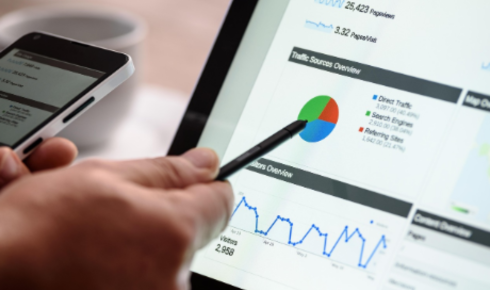Pay-per-click (PPC) advertising in high-cost markets like Boston requires precision, creativity, and strategic budgeting to ensure every dollar delivers measurable results. A Boston PPC Agency with expertise in navigating such competitive landscapes leverages innovative solutions that amplify reach while minimizing wasted spend. Below are seven powerful strategies agencies use to maximize ROI even when click prices soar.
1. Advanced Audience Segmentation for Hyper-Targeting
The foundation of PPC success in expensive markets lies in reaching the right audience—not just the biggest one. Advanced audience segmentation uses demographic, psychographic, and behavioral data to create refined customer groups based on purchase intent and interests.
How to Execute It:
- Leverage First-Party Data: Use CRM data, past conversions, and website analytics to build high-value audience segments.
- Apply Layered Targeting: Combine factors like age, income, and geographic location (e.g., targeting Boston’s Back Bay for luxury services) for precision.
- Refine Through Exclusions: Remove audiences that don’t align with your conversion goals—like students for high-ticket B2B offers.
Example: A Boston law firm might segment campaigns to target executives in the Financial District searching for “corporate legal services,” ensuring ads appear only to decision-makers rather than general legal researchers.
2. Geo-Conquesting to Outperform Local Competitors
Geo-conquesting allows advertisers to serve ads to users near competitors’ locations or who recently visited them. This tactic is especially effective in densely populated, competitive cities like Boston, where businesses vie for the same customers.
How to Execute It:
- Set Up Geo-Fencing: Use Google Ads or platforms like GroundTruth to draw digital perimeters around competitor locations.
- Craft Comparative Ad Copy: Highlight unique benefits—“Better service than [Competitor Name]” or “Rated #1 Boston dentist for affordability.”
- Use Location-Based Offers: Provide time-sensitive discounts or local deals that appeal to nearby customers.
Example: A Boston-based gym can target ads at users who recently visited rival gyms in Cambridge or Somerville, promoting a free trial week to convert them.
3. Conversion Rate Optimization (CRO) with Landing Page Testing
Even the most perfectly targeted ads fail without optimized landing pages. Conversion rate optimization focuses on turning more clicks into sales, improving ROI without increasing ad spend.
How to Execute It:
- A/B Test Continuously: Test headlines, CTAs, and visuals on landing pages to identify what drives conversions.
- Align Message Match: Ensure that ad copy mirrors landing page content for consistency and trust.
- Use Heatmaps and Analytics: Tools like Hotjar or Google Optimize help visualize where users drop off, allowing for targeted improvements.
Example: A Boston digital marketing agency might test two versions of a landing page—one emphasizing “data-driven PPC management” and another focusing on “local expertise”—to see which resonates more with Boston-based businesses.
4. Smart Bidding Strategies and AI Automation
In high-cost markets, manual bidding can lead to overspending or underperforming campaigns. Smart bidding leverages AI to adjust bids automatically based on user behavior, device type, and conversion likelihood.
How to Execute It:
- Enable Smart Bidding in Google Ads: Options like Target CPA (Cost per Acquisition) or Target ROAS (Return on Ad Spend) automate optimization.
- Feed Quality Data: The algorithm’s success depends on robust historical data—ensure accurate conversion tracking is in place.
- Monitor and Fine-Tune: Regularly review performance and tweak targets to maintain efficiency.
Example: A Boston SaaS company using Smart Bidding can automatically increase bids for searches conducted during peak office hours when B2B decision-makers are more likely to convert.
5. Leveraging Multi-Channel PPC Strategies
Relying solely on Google Ads can limit growth potential. By expanding campaigns across multiple platforms—such as Bing Ads, LinkedIn, and Meta Ads—businesses diversify their reach while reducing reliance on a single, high-cost channel.
How to Execute It:
- Identify Platform Fit: Use LinkedIn for B2B leads, Meta for consumer brands, and Bing to target professional audiences often overlooked.
- Repurpose Creative Assets: Tailor ad messaging to each platform’s tone while keeping brand consistency.
- Cross-Analyze Data: Track performance across channels to reallocate budgets dynamically to the best performers.
Example: A Boston tech startup might use LinkedIn PPC to reach IT directors while running YouTube ads to build awareness among general tech enthusiasts.
6. Ad Scheduling and Budget Allocation Optimization
Timing can make or break ROI in PPC service. Analyzing when your audience is most active allows you to bid strategically during peak performance windows and pause ads during low-yield periods.
How to Execute It:
- Review Historical Data: Use Google Ads’ “Time of Day” reports to find conversion-heavy hours.
- Set Ad Schedules: Adjust bids to be higher during proven profitable hours (like weekday mornings for B2B campaigns).
- Use Dayparting in Combination with Budget Caps: Prevent overspending by setting strict daily limits while prioritizing top-performing time slots.
Example: A Boston e-commerce brand selling premium goods may see better performance during evening hours when consumers are shopping online, prompting higher bids after 6 p.m.
7. Continuous Competitor Analysis and Keyword Refinement
Keyword prices fluctuate based on competition. In high-cost markets like Boston, agencies must constantly monitor rivals and adapt bidding strategies to maintain profitability.
How to Execute It:
- Use Competitive Tools: SEMrush, SpyFu, and Google’s Auction Insights reveal which competitors are driving up keyword bids.
- Refine Long-Tail Keywords: Instead of bidding on “Boston marketing agency,” focus on “performance-driven marketing agency in Boston.”
- Regularly Audit Keyword Lists: Remove low-converting or costly keywords to streamline campaigns.
Example: A boutique marketing agency in Boston can identify competitors dominating “digital marketing Boston” and pivot toward niche terms like “SEO and PPC for local startups,” capturing more affordable yet high-intent traffic.
Final Thoughts
In a high-cost advertising environment, success requires more than just ad spend—it demands strategy, precision, and adaptability. A Boston PPC Agency that integrates audience insights, automation, CRO, and multi-channel strategies can significantly improve ROI even when cost-per-click rates soar. With continuous testing, optimization, and smart data use, businesses can not only compete but thrive in one of the nation’s most competitive digital markets.




